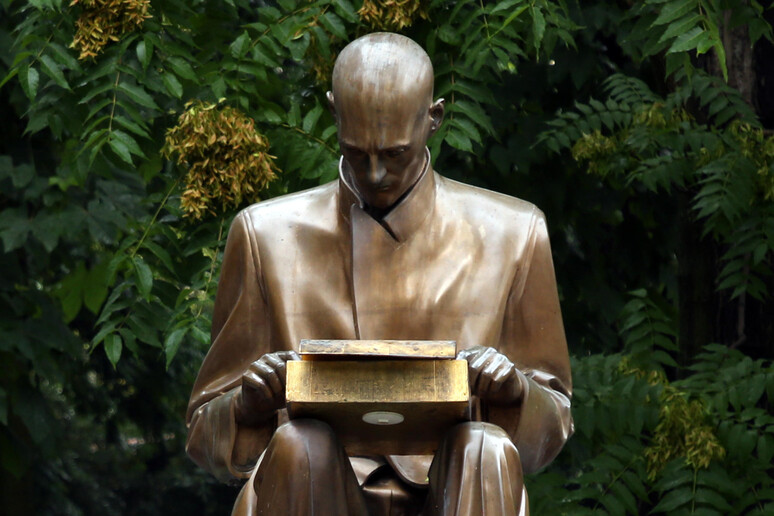The anti-fascist 'Sentinel' group want Milan to join the spirit of the Black Lives Matter protesters and remove a statue of Indro Montanelli, late doyen of Italian journalism, because he bought and 'married' a 12-year-old Eritrean girl during the Second Italo-Ethiopian War in 1936.
The Sentinels said in an open letter to Mayor Giuseppe Sala that the statue, located in the Giardini Pubblici Indro Montanelli (Indro Montanelli Public Gardens), represents the acceptance of slavery, racism, and colonial abuse.
The letter also requests that the name of the park be changed to honour someone "more worthy to represent the history and memory of our city." Montanelli was a prominent right-wing journalist known for being an independent-thinker and prolific writer. He died in 2001, and never expressed remorse about his decision to purchase the Eritrean girl. On the contrary, he spoke and wrote openly about it on numerous occasions.
In a 1982 interview with journalist Enzo Biagi, he referred to the girl, named Destà, as a "docile animal." As Montanelli is an icon of Italian journalism, many journalists and political leaders are firmly against the statue's removal.
Sala said Friday he was "not favourable" to removing the statue, saying: "I think that in all our lives there are mistakes. And Montanelli certainly made one. But Milan recognises his qualities, which are unquestionable".
Nationalist opposition League leader Matteo Salvini said "the left are a disgrace" in wanting the stature removed.
A model of concision and clarity, Montanelli's journalism, and historical writings, is still widely admired.
A staunch anti-Communist, he famously left establishment newspaper Corriere della Sera when it took a leftward turn in the late 1970s and founded his own, conservative and libertarian newspaper, Il Giornale, only to be forced out when media magnate and owner Silvio Berlusconi wanted to bend it to his political aims after entering the fray at the head of the centre-right Forza Italia in 1994.
Montanelli became a fierce critic of Berlusconi's sally into politics, which was to make him the most successful centre right leader in recent history.
This isn't the first time the Montanelli statue has been at the centre of controversy. On 8 March 2019, feminist activists from the group Non Una di Meno (Italy's equivalent of the Me Too movement) dumped a bucket of pink paint over the statue. The incident occurred after a 1969 RAI Storia video clip circulated online of Eritrean-Italian journalist Elvira Banotti interrogating Montanelli about his relationship with Destà. In the video, when Banotti accuses him of being a rapist, he defends the relationship as a cultural difference between Africa and Europe. At the time, the legal age of consent in Italy was 14.
I Sentinelli's request comes as other statues are being removed in the US and the UK. On 7 June, a statue of Edward Colston, a slave trader, was toppled by protesters in Bristol.
In London on 9 June, a statue of Robert Milligan, a wealthy slaveholder, was formally removed from outside the Museum of London Docklands. In the US, some protesters are vandalizing statues of confederate soldiers, while others are negotiating with state representatives about their removal.
Many Black Lives Matter activists in Italy stand strongly with I Sentinelli. The nonprofit organization Arci Milano, also based in Milan, voiced support of I Sentinelli in a post on Facebook.
A petition on Change.org to remove the statue of Montanelli currently has over 7,500 signatures. A more recent petition to change the name of Giardini Pubblici Indro Montanelli to Giardini Pubblici di Porta Venezia (Public Gardens of Porta Venezia) has over 1,500 signatures. The latter petition also requests that the nearby street named "Via Montanelli" be renamed "Via Destà."
ALL RIGHTS RESERVED © Copyright ANSA











